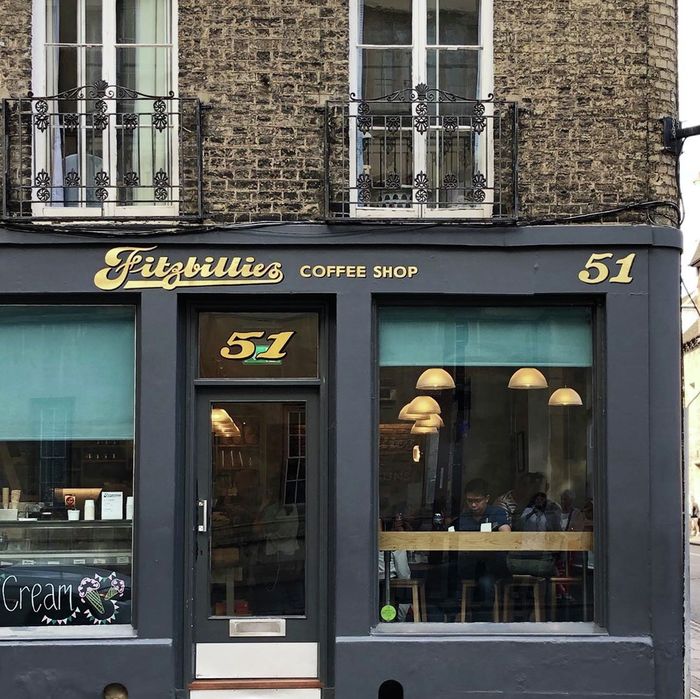Keeping up with the Quarantine
Social media, ‘self-improvement’, and self-isolation – Rebecca Hartley explores body image under lockdown
Content Note: This article contains a discussion of obsessive-compulsive thinking, and dieting and exercise cultures
As the nation enters its fifth week of lockdown, people are getting increasingly creative with their time. As a society, we seem to be engaged in one huge, virtual pub quiz, desperate to stay emotionally connected as we live in a state of physical isolation.
Now, I want to begin this article with a disclaimer. When approached with a healthy mindset, philosophies of ‘self-improvement’ can be extremely valuable. Everyone, whether it be through baking, downing pints, or becoming TikTok famous, is looking for ways to cope. As I entered lockdown, my method of coping was to begin a diary. However, rather than provide a source of laughter, it became a means of self-loathing. My daily entries constituted solely of calories, consumed and burned; rather than be a recollection of experiences, it served only as a record of my diet and exercise. Removed from the city in which I’d lived for years and geographically dislocated from my friends, I began to devote my time and attention to continuously monitoring myself, and started to live with uncharacteristic levels of resentment for myself and body.
“Yet although my body belongs to me, on many occasions, my mind does not.”
It is only now, after a month, that I have been able to truly reflect on my developed pattern of behaviour. I called my best friend, crying, through each tear describing myself as a beached-whale (irrationally and dramatically, might I add). This vocabulary of self-loathing had developed from weeks of unhealthy behaviour. My OCD had reared its sertraline-suppressed head yet again, taking on a different form in quarantine. To counter the uncertainty and instability of the world around me, I had become obsessive over the one thing that lay exclusively within my jurisdiction – my body.
Yet, although, my body belongs to me, on many occasions, my mind does not. Lockdown has entered our lives, bringing with it inspirational, well-intentioned, and largely positive promises of self-improvement. We are encouraged to become the best versions of ourselves and to use this time productively. However, beneath these ambitions can lie a subtext of inadequacy and unhealthy competition. I can only speak for myself, but my Instagram is saturated with videos of free home-workout classes, delivered by influencers who already have what society would class as ‘perfect’ bodies. These ten-minute HIITS have the capacity not only to target your muscles but take one huge HIT at your self-esteem. Videos and ‘self-improvement’ philosophies such as these, condense long term goals into unobtainable, short term solutions.
On social media, there is little room for imperfections and bad days. I am in no way saying that other people and their lifestyles are to blame for the wavering of my mental health. However, through no fault of their own, they exacerbate it. Even without the looming reality of a pandemic, social media already invites us to compare ourselves to others. Someone’s 5K is always going to be faster than yours; someone else’s time in quarantine is always going appear more productive. You want to use this time to become the ‘best version of yourself’ yet are encouraged to do so at an unrealistic pace. Everybody is living through their own lockdown and experiencing their own physical and emotional journey in the process.
I’ve realised that it’s okay to have a ‘bad day’ and not to live every day striving towards socially accepted modes of self-improvement. You don’t have to develop a six-pack, learn a new language, or become the next Nigella. Although such ambitions are not to be sniffed at, one of the greatest ways of ‘bettering yourself’ is to cultivate a strong sense of self-belief.
It is okay to want to ‘improve yourself’, but we must do so in the knowledge that we are good enough to begin with.
 News / Hundreds of Cambridge academics demand vote on fate of vet course20 February 2026
News / Hundreds of Cambridge academics demand vote on fate of vet course20 February 2026 News / Judge Business School advisor resigns over Epstein and Andrew links18 February 2026
News / Judge Business School advisor resigns over Epstein and Andrew links18 February 2026 News / University Council rescinds University Centre membership20 February 2026
News / University Council rescinds University Centre membership20 February 2026 News / Petition demands University reverse decision on vegan menu20 February 2026
News / Petition demands University reverse decision on vegan menu20 February 2026 News / Caius students fail to pass Pride flag proposal20 February 2026
News / Caius students fail to pass Pride flag proposal20 February 2026










